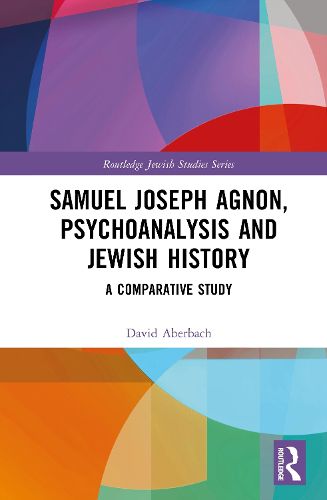Readings Newsletter
Become a Readings Member to make your shopping experience even easier.
Sign in or sign up for free!
You’re not far away from qualifying for FREE standard shipping within Australia
You’ve qualified for FREE standard shipping within Australia
The cart is loading…






Samuel Joseph Agnon, Psychoanalysis and Jewish History: A Comparative Study compares the writings of Samuel Joseph Agnon (1887-1970) with other writers, including Gustav Flaubert, Franz Kafka, D. H. Lawrence and Carl Gustav Jung, as well as his great Hebrew predecessors, Mendele Mocher Sefraim and Chaim Nachman Bialik, who drew on the ancient Jewish biblical and rabbinic tradition in creating a modern secular literature. Through close readings of Agnon's fiction in comparison with some of his great contemporaries, the reader comes to a new appreciation of the richness and psychological depth of modern Hebrew literary art and its roots in ancient Jewish history and literature; of Agnon as a major figure bridging the traditional culture of the pre-1939 East European Jews with the modern world; of Hebrew fiction amid tumultuous historical change, as its centre shifted in the early 20th century from Eastern Europe to Tel Aviv; and of the centrality of Hebrew literature in the rise of modern Jewish nationalism as anti-Semitism grew.
This book is of particular value to students of Hebrew and Comparative Literature and of psychoanalysis and the sociology of literature, but it is written clearly and without jargon and has much interest to the general reader.
$9.00 standard shipping within Australia
FREE standard shipping within Australia for orders over $100.00
Express & International shipping calculated at checkout
Samuel Joseph Agnon, Psychoanalysis and Jewish History: A Comparative Study compares the writings of Samuel Joseph Agnon (1887-1970) with other writers, including Gustav Flaubert, Franz Kafka, D. H. Lawrence and Carl Gustav Jung, as well as his great Hebrew predecessors, Mendele Mocher Sefraim and Chaim Nachman Bialik, who drew on the ancient Jewish biblical and rabbinic tradition in creating a modern secular literature. Through close readings of Agnon's fiction in comparison with some of his great contemporaries, the reader comes to a new appreciation of the richness and psychological depth of modern Hebrew literary art and its roots in ancient Jewish history and literature; of Agnon as a major figure bridging the traditional culture of the pre-1939 East European Jews with the modern world; of Hebrew fiction amid tumultuous historical change, as its centre shifted in the early 20th century from Eastern Europe to Tel Aviv; and of the centrality of Hebrew literature in the rise of modern Jewish nationalism as anti-Semitism grew.
This book is of particular value to students of Hebrew and Comparative Literature and of psychoanalysis and the sociology of literature, but it is written clearly and without jargon and has much interest to the general reader.